Originating from Indonesia, Kopi Luwak is known as one of the most expensive coffees in the world.
Due to its unique production process and rarity, it commands a high price.
However, behind its exclusivity lies ethical concerns that many consumers may not be aware of.
In this article, we will delve into the allure of Kopi Luwak while shedding light on the challenges associated with it.
- The history of Kopi Luwak and its unique production process
- Why is it so expensive? The reasons behind its price and market trends
- Its distinctive flavor and how it differs from other coffees
- Ethical concerns related to animal welfare in production
- Sustainable alternatives and other premium coffee options
What is Kopi Luwak?
Kopi Luwak is a special type of coffee made from coffee beans that have been eaten and excreted by civet cats.
It is primarily produced in Indonesia and is highly valued worldwide for its unique production method and rarity.
The defining characteristic of this coffee is that the digestive enzymes of the civet cat ferment the beans, creating a distinct flavor.
Compared to regular coffee, it has less bitterness and a smooth, mellow taste.

Basic Information and History of Kopi Luwak
Historically, during the Dutch colonial period in Indonesia, laborers were prohibited from picking coffee beans directly from the farms.
Instead, they discovered that coffee beans excreted by civet cats could still be used, leading to the origin of Kopi Luwak.
This accidental discovery has since turned into one of the most expensive coffees in the world.
Today, it is not only produced in Indonesia but also in countries like the Philippines and Vietnam, attracting coffee enthusiasts worldwide.
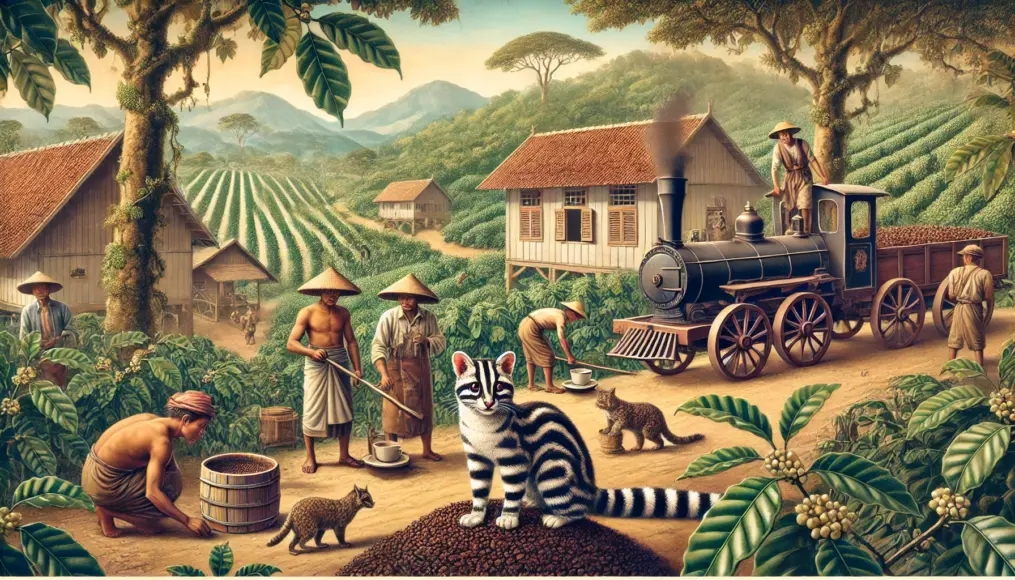
Why is Kopi Luwak Expensive?
The high price of Kopi Luwak is primarily due to three key factors:
- Rarity: Since civet cats naturally select and eat coffee cherries, mass production is challenging.
- Unique Fermentation Process: The digestive enzymes of the civet cat alter the beans, resulting in a smooth and refined flavor.
- Labor-Intensive Processing: Extracting the beans from excrement, washing, drying, and roasting them requires time and effort.
Additionally, the growing demand for Kopi Luwak has led to the emergence of counterfeit or artificially produced versions, making careful selection crucial when purchasing.
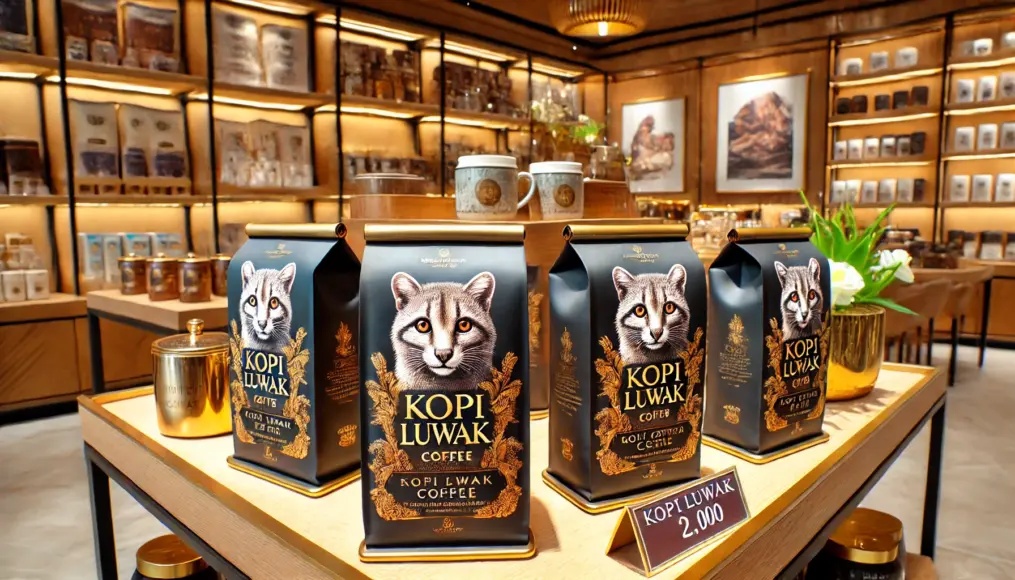
Characteristics and Taste of Kopi Luwak
Kopi Luwak is a coffee known for its unique flavor and smooth texture.
It is highly regarded by coffee enthusiasts worldwide as a distinctly different experience from regular coffee.
However, understanding how its distinctive flavor is created is essential.
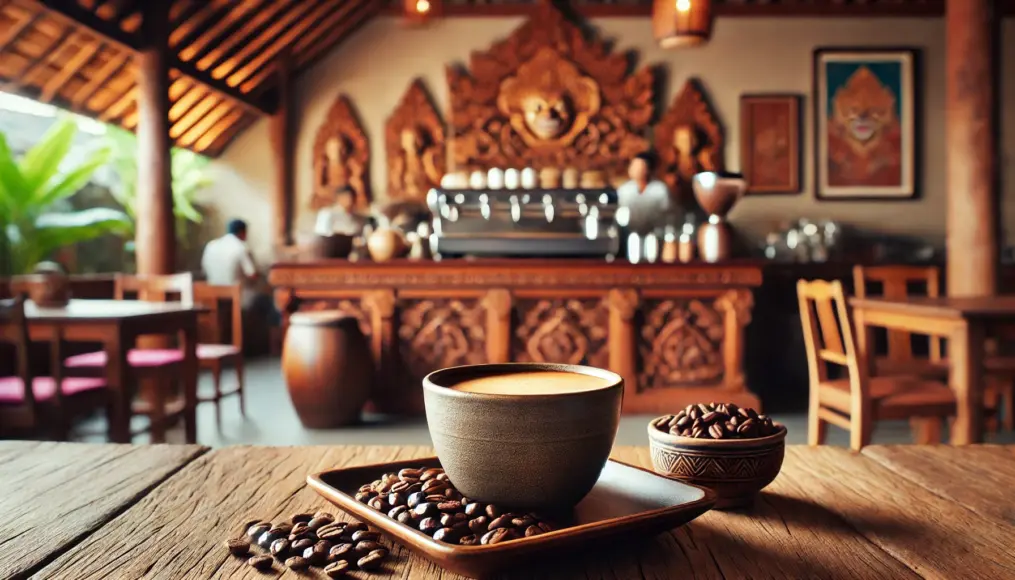
Unique Flavor Profile and Taste
Kopi Luwak derives its distinct flavor from the digestive enzymes of civet cats.
This process breaks down the proteins in the beans, reducing bitterness and enhancing a mellow and sweet taste.
- Notes of citrus and caramel sweetness
- Low acidity with a smooth aftertaste
- Subtle hints of nuts and chocolate
- Lighter mouthfeel compared to regular coffee
However, the flavor can vary significantly depending on the roasting method and brewing process.

Comparison with Other Coffees
Compared to common Arabica and Robusta varieties, Kopi Luwak features a milder bitterness and a more delicate taste.
Understanding these differences can help you choose the coffee that suits your preference.
- Arabica: Fruity with rich acidity
- Robusta: Strong bitterness with high caffeine content
- Kopi Luwak: Low bitterness with pronounced sweetness and smoothness
In particular, lightly roasted Kopi Luwak highlights its fragrant qualities with reduced acidity.
On the other hand, a darker roast brings out more chocolate and caramel-like sweetness.

Ethical Issues of Kopi Luwak
Kopi Luwak is known as one of the most expensive coffees in the world, but its production raises several ethical concerns.
In particular, issues related to animal welfare and sustainability have become more prominent.
Here, we delve into the realities behind Kopi Luwak production and the associated problems.
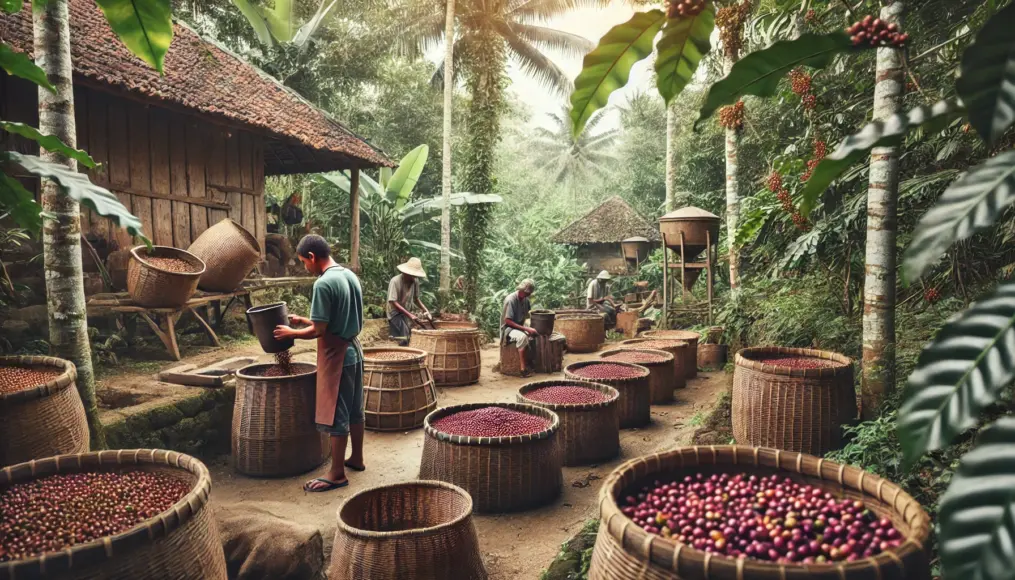
The Reality of Production and Animal Welfare Concerns
Kopi Luwak is produced by feeding coffee cherries to civet cats, then collecting the undigested beans from their feces.
While this unique process gives the coffee its distinctive flavor, it also raises concerns about the treatment of these animals.
- Forced Feeding: Civet cats, which naturally eat a variety of foods, are sometimes forced to consume only coffee cherries
- Confinement in Small Cages: Civet cats, which are meant to roam freely, are often kept in cramped cages
- Stress and Health Issues: Prolonged captivity leads to high stress levels, illnesses, and shorter lifespans
- Decline of Wild Collection: As demand rises, naturally sourced beans become scarce, increasing reliance on farmed civets
These issues have intensified as Kopi Luwak’s popularity continues to grow.
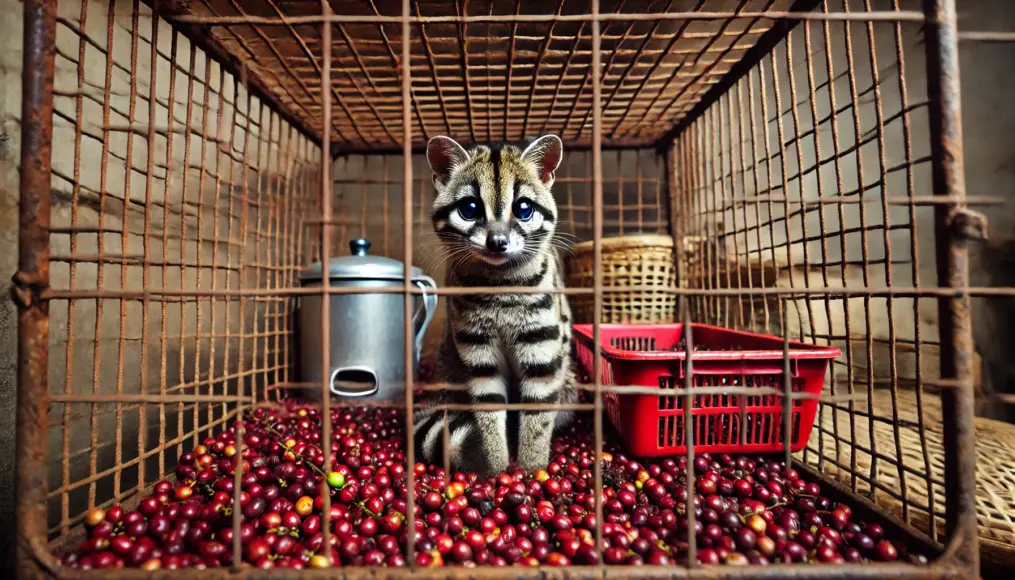
How to Choose Sustainable Kopi Luwak
To enjoy Kopi Luwak responsibly, careful selection is essential.
By following these guidelines, consumers can contribute to more ethical consumption.
- Opt for Wild-Collected Beans: Choose beans sourced from civets in the wild rather than those from farmed animals
- Look for Certifications: Choose brands certified by organizations that prioritize animal welfare and environmental protection, such as Rainforest Alliance or Fair Trade
- Buy from Reputable Sellers: Ensure that the seller provides transparency regarding the origin and production process
- Consider Alternative Luxury Coffees: Explore high-end coffees with similar flavors, such as Panama Geisha
When purchasing Kopi Luwak, it’s crucial to consider not just the price, but also the ethical implications behind its production.
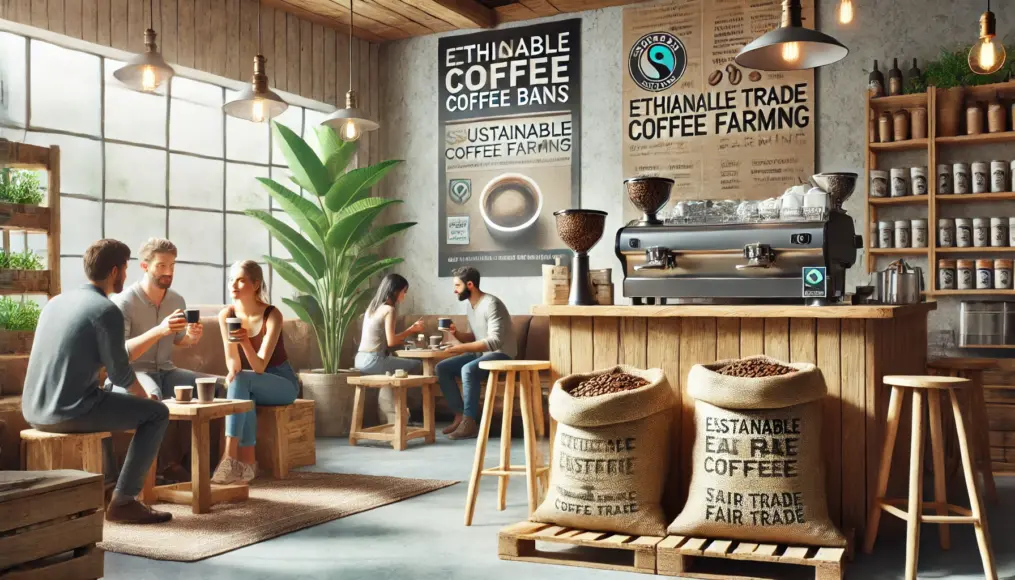
Enjoying Kopi Luwak
Kopi Luwak is one of the most sought-after luxury coffees worldwide due to its rarity and unique production method.
However, considering the ethical concerns and the prevalence of counterfeit products, buyers need to be cautious.
This section explains how to choose a reliable source and explores alternative high-end coffees.
How to Identify a Trustworthy Source
When purchasing Kopi Luwak, the most crucial factor is identifying a trustworthy seller.
Many counterfeit or low-quality products flood the market, making informed decisions essential.
- Check for Certification Marks
- Look for certifications like Rainforest Alliance or Fair Trade Certified
- These marks indicate ethical production practices that consider animal welfare and environmental conservation
- Verify the Origin
- Choose beans sourced sustainably from Indonesia’s Sumatra or Bali regions
- Ensure the beans are collected from wild civets in their natural habitat
- Assess Roasting and Freshness
- Purchase from reputable specialty coffee shops or direct-import roasters
- Select freshly roasted beans and grind them just before brewing
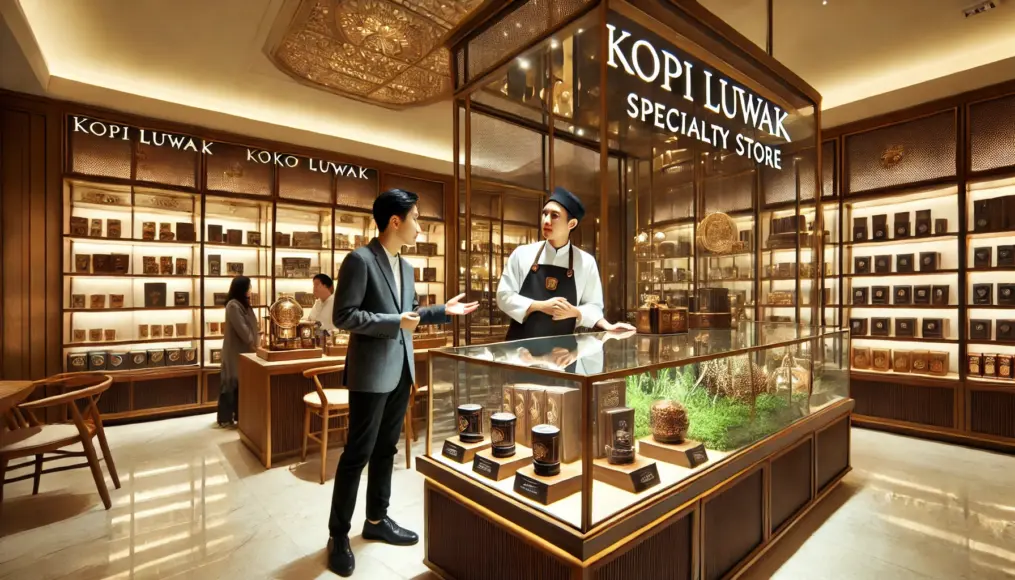
High-End Alternatives to Kopi Luwak
Due to ethical concerns, more people are seeking alternative luxury coffees that do not involve animals.
Several sustainably produced coffees offer unique and exquisite flavors comparable to Kopi Luwak.
- Artificially Fermented Coffee
- Uses microbial fermentation technology to mimic the smooth taste of Kopi Luwak
- Being developed by research institutions in Canada and Japan
- Geisha Coffee
- A high-end coffee from Panama, known for its jasmine-like floral aroma
- Comparable to Kopi Luwak in rarity and prestige
- Hawaiian Kona Coffee
- A premium coffee grown exclusively in certain regions of Hawaii
- Offers a rich sweetness and fruity acidity
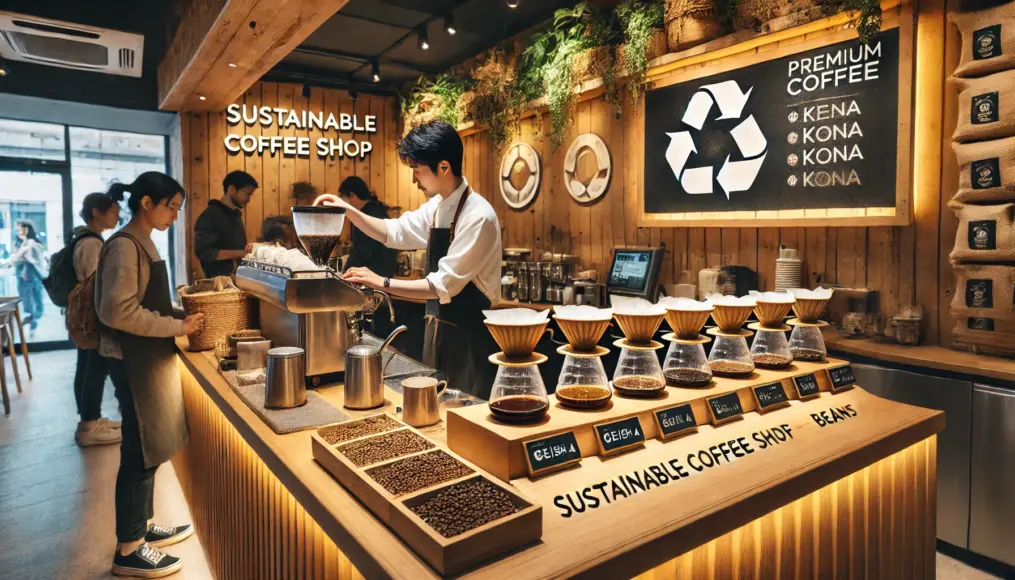
Summary
Kopi Luwak is known as “the world’s most expensive coffee” due to its unique production process and rarity.
It is valued for its distinctive flavor and smooth texture, but ethical concerns regarding animal welfare and sustainability have been raised.
This article explored various aspects of Kopi Luwak, from its basic information to ethical issues.
- The history of Kopi Luwak and why it is considered a luxury
- Its unique flavor profile and differences from other coffees
- Animal welfare concerns in the production process
- How to choose sustainable options and alternative high-end coffees
If you want to enjoy Kopi Luwak, it’s essential to understand its background before making a choice.
What are your thoughts on Kopi Luwak?
Share your opinions in the comments!









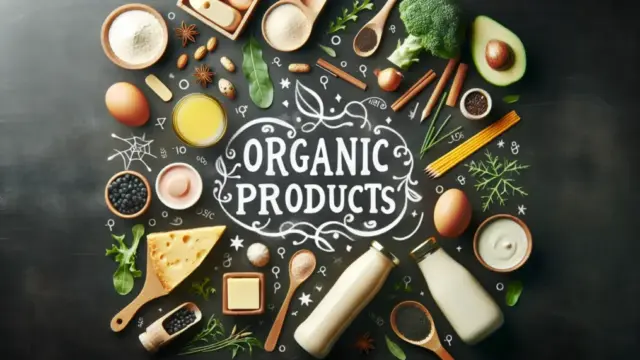







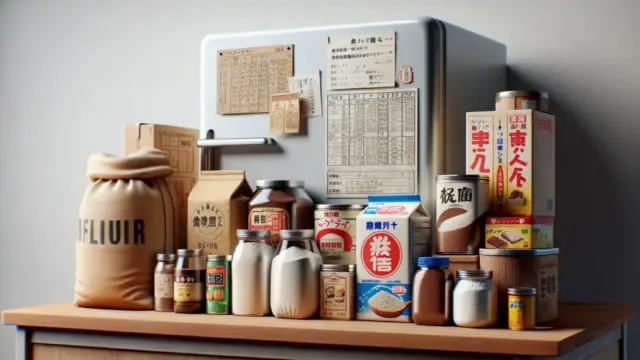


























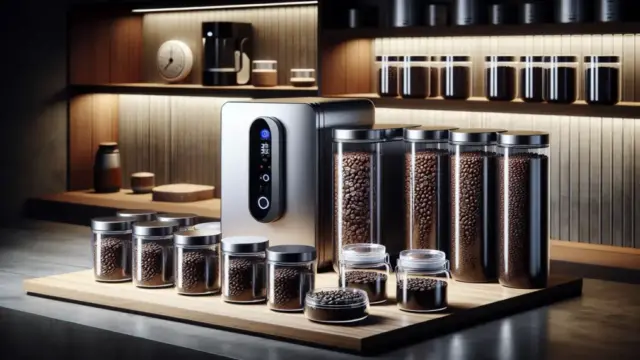

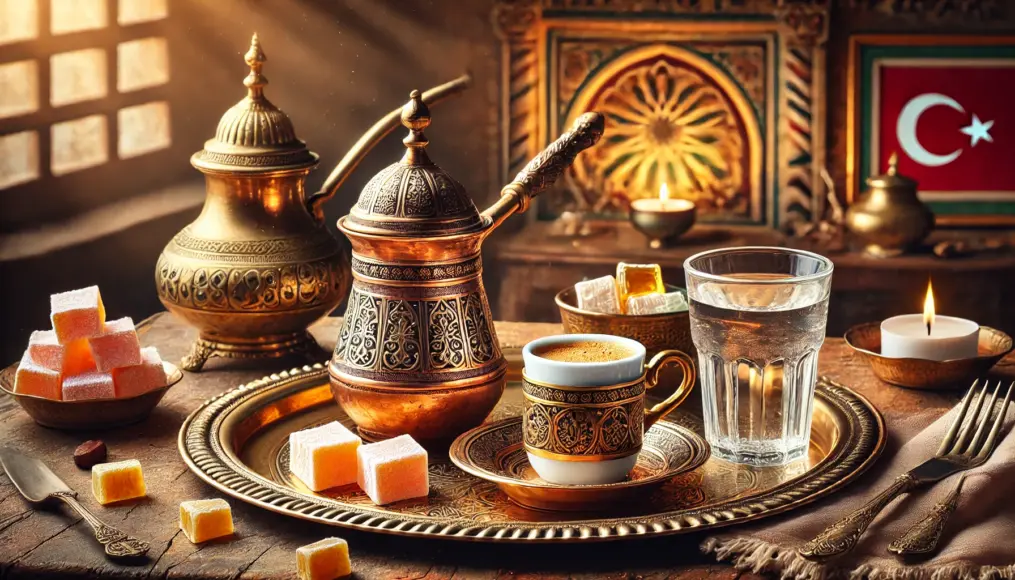

Comment